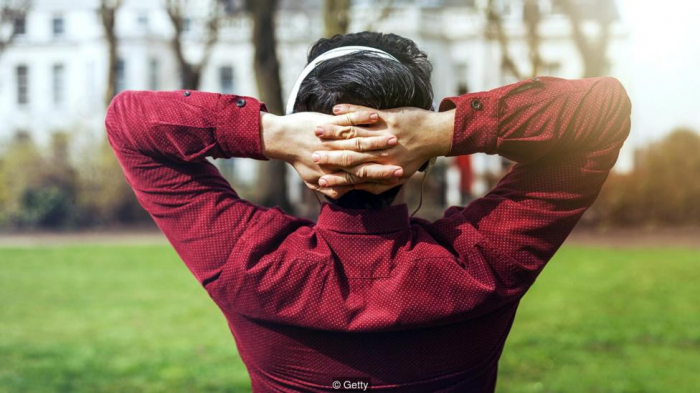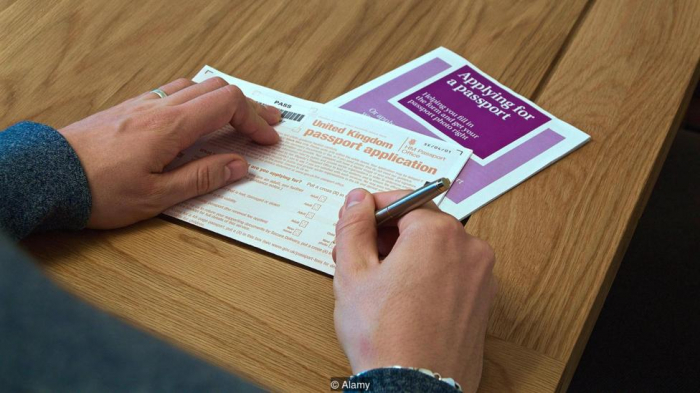Many of us rethink our lives in January, sit exams in May or June and get married in summer – and other events, like buying a house or applying for a job, we do throughout the year. But what if there was a better way?
It turns out that when it comes to life events like these, some months are more optimal than others. Of course, it’s unlikely that you’ll be able to reschedule your year around what the research has shown to be best. But if you could, what would your year look like? Here’s a taste of how you could organise your calendar in a smarter, better way.
January: the best time of year to… apply for a job
Perhaps in our efforts to turn over a new leaf, Google searches for ‘jobs’ peak in January, according to data from UK recruitment websites TotalJobs and Pagegroup. But few of these Google-searchers actually seem to apply for jobs compared to other months.

Google searches for ‘jobs’ peak in January – but few people actually apply (Credit: Nappy.co)
That makes it a particularly good time of year to put in those applications. There were 14% fewer applications per available job from January to June than in July to December. This is likely because the majority of UK university students graduate in summer, leading to a glut of people job hunting in the autumn.
It’s also a good month for other reasons: other than the first week, it’s a time when few people go on holiday, so there are more people in the workplace ready to make quick hiring decisions. Companies usually get their new hiring budgets for the year too. And since annual bonuses often pay out in December, a lot of people wait until January to change jobs – meaning there can be an abundance of new vacancies in January.
February: the best time of year to… buy car insurance
In the UK, at least, average car insurance premiums spike in December, according to two pieces of research which analysed millions of quotes by British price comparison sites CompareTheMarket and MoneySuperMarket, respectively. But prices often drop sharply again in January. According to MoneySuperMarket, the average full comprehensive policy for Brits taken out in December 2016 cost £644 ($812), while in February 2017, two months later, it cost £544.43 ($685). Drivers who insure their cars in December paid on average 15% more than those who insured in February.

Car insurance prices usually drop after December (Credit: Getty)
The reasons for the rise in premium prices in December? The increased number of drivers on the road, combined with icy conditions – which increases the chance of accidents. The winter holidays also play a role, since call centres have fewer employees and fewer insurance quotes get generated, a drop in competition that allows for higher prices.
But whatever the time of year, buying a policy three weeks before the renewal date is optimal, according to research by MoneySavingExpert, a British personal finance advice website. MSE analysed millions of quotes and found the sweet spot for buying a car insurance policy was 21 days before it was up for renewal. The company says: “It's all based around risk – buying it three weeks before you need it suggests you're more careful and organised, while leaving it to the last minute means you're seen as higher risk, with some insurers telling us they've seen a direct link between drivers who leave sorting their insurance to the last moment and a higher number of claims.”
March: the best time of year to… get married
The most popular time to get married in the US is autumn, while in the UK it’s summer. That means that those are also the most expensive times of year. And so, in northern hemisphere countries at least, you’re likely to reduce your expenses by getting married in an off-season month like January, February or March. (In Australia, where the most popular time for a wedding is the springtime month of November, June – the least common month – would be a better choice).

In many countries, March is an off-season – and therefore cheaper – month for a wedding (Credit: Getty)
That could have implications for more than your budget: A study of 3,000 US couples found that those who had a cheaper wedding ceremony were more likely to have longer marriages. (Find out more in our story on the best time of year to get engaged, married, pregnant or divorced).
April: The best time of year to… try for a baby
When it comes to fertility, one important factor is sperm health and quantity – and several studies have found that both tend to peak in spring. As we’ve written before, sperm samples from 29,000 US men over a 17-year period found the highest numbers of moving sperm in springtime and the lowest in the summer, while a Swiss study of more than 12,000 men also found that sperm concentration was also highest in the spring and lowest in summer.

There may be a small boost to fertility in spring (Credit: Getty)
That alone doesn’t mean that you’ll have a markedly higher chance of getting pregnant than other times of year. But it certainly can’t hurt.
May: The best time of year to… make a life decision
Although January tends to be a popular time to think through big choices, for those in the northern hemisphere, it’s not necessarily the best time to do so. That’s because many of us feel a bit lower in the winter months – most dramatically for the almost 10% of people estimated to have seasonal affective disorder.
As we’ve written about in depth before, when we feel down, we’re also more risk-averse. That means it might be a better time to consider doing things with potentially serious consequences because we’ll be more likely to consider the risks. But risk aversion isn’t always helpful in decision-making. And a conservative approach isn’t always the wiser one: when given a card-playing task designed to assess risk-taking, for example, depressed participants had a harder time remembering which options were more likely to yield rewards, making them worse at the game than non-depressed participants.

Because many of us feel lower in the winter months, we may be better off waiting until late spring or summer to make a big decision (Credit: Getty)
Plus, feeling depressed also makes us more conflicted and indecisive, making it harder to make any choice at all. So for many types of decisions, it’s probably better to wait until the days have lengthened and your mood has lifted – like, say, in May. (Find out more in our story on the best time of year to make a life decision).
June: The best time of year to… go to hospital
There’s never a good time to fall ill. But some months are worse than others. In northern latitudes, the winter is the most common – and worst – time of the year for a hospital visit. In the summer, on the other hand, there is some evidence that months that see an influx of new medical graduates – typically July and August – can be riskier.
In England, the number of elective hospital admissions per day – that includes scheduled appointments and operations, but not visits to the emergency room – peaks in November and February to March. A&E admissions, too, peak in February and March. And internationally, hospital admissions for many diseases also peak in winter along with the incidence of those diseases. They include respiratory diseases like pneumonia and, among older age groups, asthma and heart attacks. That means that hospitals are typically at very high occupancy levels throughout the winter and there are fewer beds available – as well as a higher chance of longer wait times at A&E.

Summer is the least busy time at hospital – which makes it a better time to go (Credit: Getty)
If you can, though, you may want to avoid August or July in the US – or January in Australia. This is when there’s a mass influx of new medical graduates to hospital wards and when many junior doctors change hospitals or roles. Critics argue that the combination of newbie inexperience and mass turnover, where fewer doctors are fully familiar with their role, can lead to an increase in medical errors.
From 1993 to 2001, the National Bureau of Economic Research found a 4% rise in mortality across 700 major teaching hospitals in July and August, while a Californian study found A&E patients were more likely to suffer from preventable complications when admitted in July and August compared to those admitted in May and June. After adjusting for other factors, there was a 90% increase in the risk of experiencing preventable or potentially preventable complications (though even then, it was still rare – just over 1%). Another US study found patients admitted to surgery in teaching hospitals in July and August were 41% more likely to die over next 30 days than those admitted in April to June.
Still, the US study above found December was just as dangerous as July. So it might be disruption to the hospital schedule – caused, in this case, by doctors going on holiday – that causes the ‘July Effect’, not simply inexperience.
Regardless, if you had to pick any single month that’s best for a hospital visit, you’d probably be best off aiming for June.
July: The best time of year to… sit an exam

One study suggests that our ability to pay attention peaks in mid-summer (Credit: Getty)
Many of us don’t have a choice about when to sit an exam. But if we do, it may be best to schedule that test for mid-summer – at least if it requires close attention. One recent, though small, study suggests brain activity and cognitive skills may follow an annual cycle. When 28 young people were tested at different times of year, the researchers found that they were best at paying attention in the midsummer and worst in midwinter. But for the working memory task, performance was best in autumn and worst in spring.
Animal research using mice suggests the brain region that responds to changing day length, the suprachiasmatic nucleus, is the same one that controls the master circadian clock that regulates daily cycles in hormones, appetite, mood, and more. It's likely that day length has an effect on processes in the brain, but scientists don't yet understand how this works.
Not all studies investigating seasonality and cognition have found an effect. One study of 182 Norwegian teenagers found time of year had no effect on memory, learning, reaction times or problem-solving abilities. Still, if you’re feeling superstitious, a summer exam date certainly couldn’t hurt.
August: The best time of year to… buy a house
In the US, spring is the most popular time to buy a home in the US, perhaps because the good weather inspires people to take action. April, May and June offer the largest number of new home listings, according to US real estate site Zillow, so will offer the largest number of options to the buyer. However, the number of other buyers looking at this time will make it a seller’s market, resulting in higher prices. April is the most competitive month, with the highest proportion of homes selling above their list price.

Looking to buy a house? You may want to wait until August (Credit: Getty)
When they analysed house price data in 50 US metropolitan areas between 2014 and 2016, US financial site NerdWallet found that the lowest prices were found in January and February, when homes cost 8.5% less on average than in June to August. But this may be partly because the type of house on the market in winter is smaller: larger family homes don't typically sell in winter months. Or because the housing stock left by winter is the poor quality stock no-one wants to buy.
Based on their research, Zillow recommends looking for a house in August and September, months which tend to offer a sweet spot of having both good reductions and a reasonably wide selection. In 2016, “in almost every large market analysed, the highest share of listings with at least one price reduction were in August and September”, the site says.
September: The best time of year to… be born
Of course, we don’t have a choice about when we’re born. But if you’re trying to plan a pregnancy down to the last detail, despite sperm being in its optimal shape in the spring, you may give your child their best shot by trying to deliver in September. Researchers have found that around the world, September babies achieve better exam results, have better cognitive skills, are less likely to be bullied and more likely to attend a top university than even children born just slightly earlier – in August.

People born in September get better exam results and are more likely to reach 100 years old (Credit: Getty)
This is likely because the school year starts around September in countries from Australia to the US. But the school year alone can’t explain the ‘September effect’. A study of nearly 1,600 US centenarians found that people born between September and November also were more likely to live to 100 – and women born in warmer months like September are less likely to develop later health problems including heart disease or insulin resistance. (Find out more in our story on the best time of year to get engaged, married, pregnant or divorced).
October: The best month to… buy stocks
“Sell in May and go away” is an age-old investment adage, referring to the traditional belief that stocks show weaker performance in the summer, from May to October, and stronger performance in the winter, from November to April. According to the adage, you should sell stocks in spring, just before the summer lull, and buy them in autumn, just before their value rises again.
As we’ve written about before, there is a good deal of truth to this old adage. A 1998 paperfound it was true in 36 of 37 markets studied and noted evidence for it in the UK stretching back to 1694. The effect may be caused by seasonal fluctuations in optimism among investors. “Towards year end, investors start to look towards the new year, often with overly optimistic expectations. This results in attractive returns for stocks. Several months into the year, this initial optimism becomes hard to maintain and the stock market experiences a summer lull,” independent financial expert Ronald Doeswijk has said.

Investors tend to be more cautious in autumn – which can make it a good time to buy (Credit: Nappy.co)
But selling in May is not what people actually do. A study by US and Canadian researchers found investors are more bullish in spring and cautious in autumn, when they are more likely to sell their risky assets to buy safer ones. And when cautious investors sell their riskier assets, the price drops – meaning quality investments can be scooped up for a low price by those willing it to take the risk. Since these quality investment were bought at a bargain, the returns are disproportionately high when the market eventually bounces back at the end of winter, boosting overall returns.
Still, the ‘sell in May’ effect is only one of many seasonal cycles affecting stock prices. Others include the January effect, the holiday effect and the turn-of-the-month effect, and the effects tend to be stronger in small-cap stocks. More importantly, of course, seasonality is only one of many, many factors affecting the stock market and returns in a given year may deviate substantially from seasonal patterns.
None of the above should be read as investment advice, of course.
November: The best time of year to… apply for a passport

Passport applications are at a low in November, making it a relatively good time to queue up (Credit: Alamy)
Waiting times for a new passport or a renewal generally increase when demand surges, so the best time to apply for a passport is when fewest other people are applying for one. Both USand UK data show that that’s in August to December, particularly November and December when fewer people are thinking about leaving the country. Applications jump in January, building to a summer rush as people scramble to get their passports renewed in time for their holidays abroad.
December: The best time of year to… buy a car
In the US, May and March used to be peak months for vehicle sales. But December has reigned since 2009, with sales 13% above the monthly average. This preference for end-of-year vehicle shopping has increased over time as buyers cotton on to the end-of-year discounts: US car dealers typically have annual sales targets and are more motivated to offer good reductions to shift stock as the year end approaches. Vehicles sold in December are the most discounted, according to US auto website Edmunds, with sales prices averaging 6.1% below the manufacturer’s suggested retail price.

As the year’s end approaches, many car companies offer price reductions (Credit: Nappy.co)
BBC
More about: year
















































